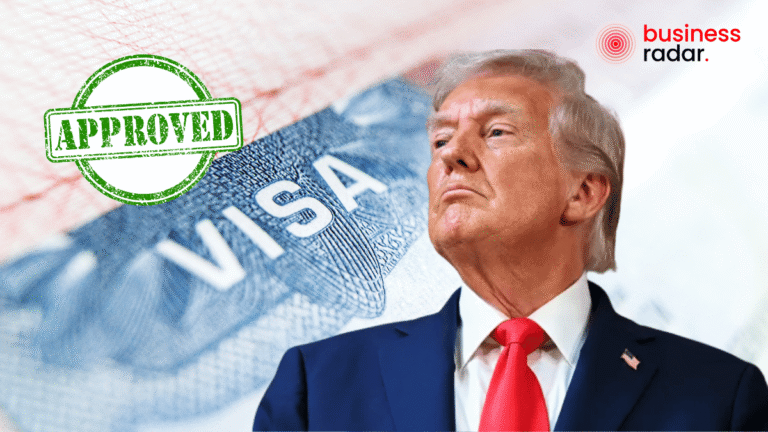Introduction
President Donald Trump signed a proclamation on September 19, 2025, introducing sweeping changes to the H-1B visa system. Among the most striking: a $100,000 one-time fee for new H-1B visa petitions. This change is designed to reshape how foreign workers are hired in the U.S., especially by companies that have traditionally relied on H-1B talent.
This article reviews the new rules, their impact, and what you need to know.
What Exactly Has Changed?
- A presidential proclamation mandates that employers filing new H-1B petitions for foreign workers outside the U.S. must pay $100,000 per petition.
- It applies only to new applications (“petitions”) not to renewals or current visa holders.
- Existing H-1B visa holders will not be required to pay this fee when renewing, or upon re-entering the U.S. after travel.
- The fee becomes effective in the next lottery cycle and will be valid for 12 months, unless extended.
📖 Source: White House – Presidential Actions
Why This Change Was Made
According to the proclamation, the measure aims to:
- Deter companies from replacing U.S. workers with cheaper foreign labor.
- Protect American jobs and encourage businesses to invest in domestic workforce training.
📖 Source: White House – Proclamations
Potential Impacts & Criticisms
- For companies: Hiring foreign workers through H-1B visas becomes significantly more expensive.
- For foreign workers: Those seeking new H-1B visas face reduced opportunities as many employers may not be willing to pay such costs.
- Economy & innovation: Critics argue this could limit U.S. competitiveness in industries that rely on specialized global talent.
- Legal challenges: The proclamation grants the Secretary of Homeland Security discretion to issue exemptions in the national interest.
📖 Source: Department of Homeland Security
Honest Opinion
This policy is a major barrier to entry for skilled foreign workers. While it may encourage companies to invest in local hiring, it risks stifling industries that rely on global expertise, such as technology and scientific research.
The clarification by the White House that this is a one-time fee and does not impact existing visa holders is significant, but the long-term effects on U.S. innovation and labor markets are uncertain.
FAQs: What People Are Asking
- Does this fee apply to current H-1B visa holders?
No. The fee does not apply to renewals or re-entries for current holders.
📖 White House – Presidential Proclamation - When does the new fee start?
It begins with the next H-1B lottery cycle.
📖 U.S. Citizenship and Immigration Services (USCIS) - Is the fee annual or one-time?
It is a one-time fee for new petitions, not recurring.
📖 White House – Proclamation - Are there any exceptions?
Yes. DHS may grant exemptions if hiring is in the national interest and does not harm U.S. workers.
📖 Department of Homeland Security - What about re-entry for existing H-1B holders?
The proclamation does not impact their ability to re-enter the U.S. with valid visas.
📖 White House – Press Secretary Statement
Conclusion
The new $100,000 fee for H-1B petitions represents a fundamental shift in U.S. immigration policy. While designed to protect domestic workers, it places a significant burden on employers and could restrict access to highly skilled talent.
For businesses and individuals navigating this change, staying updated via official government channels like the White House, DHS, and USCIS will be crucial.
Disclaimer: This article is for informational purposes only and does not constitute legal advice. For case-specific guidance, consult official DHS and USCIS resources.


